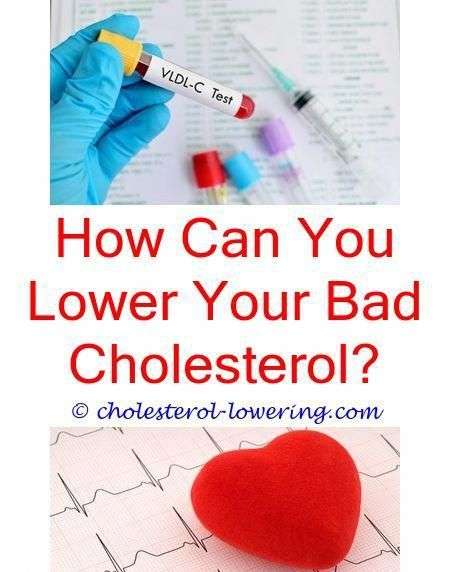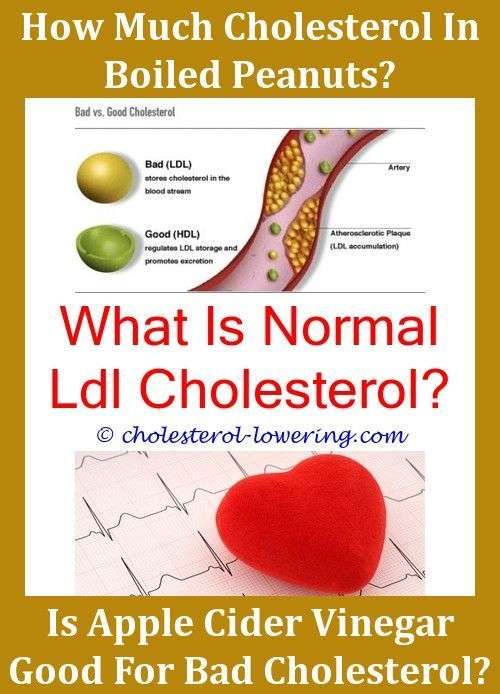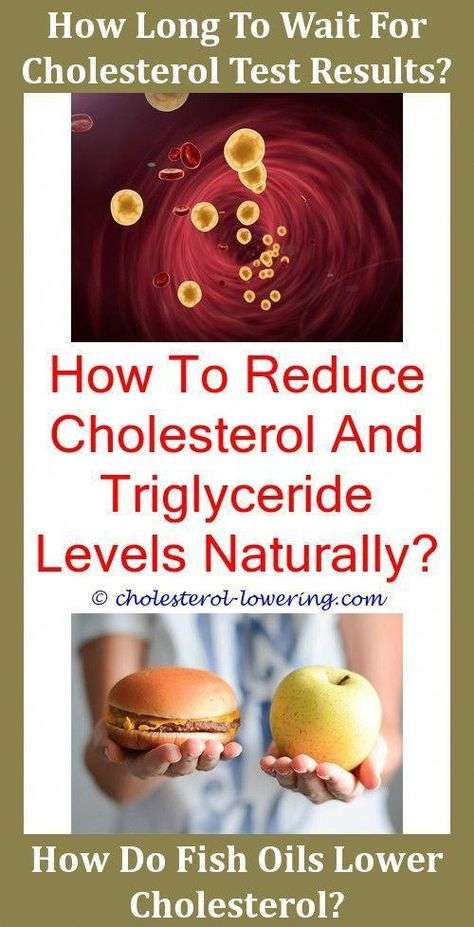What Is Cholesterol And What Does It Do To Your Body
Cholesterol plays a vital role in the body. It is our bodys waxy repair substance and it is found in all cells. It is responsible for repairing damaged tissue in the body and is produced in the liver, released into your bloodstream, and directed to the areas of the body that needs repair.
There are two types of cholesterol, low-density lipoprotein or LDL, and high-density lipoprotein.
Low-density lipoprotein or LDL is considered bad cholesterol because it can get stuck and pile up on damaged arterial walls, and later become calcified, narrowing blood passages. Although this cholesterol is dubbed bad, this type of cholesterol is not entirely bad. Read more about that here.
High-density lipoprotein is considered good cholesterol because it carries the bad cholesterol out of the arteries, back to the liver and enhances heart health.
| Thank you for Signing Up |
Cholesterol is not always bad. It becomes harmful when inflammation in your arteries occurs. These inflammations can cause holes in the artery walls. Cholesterol in your bloodstream reacts to the affected area and immediately tries to repair the damage. As it works to heal the artery bad cholesterol, pile up, and thicken arterial walls causing calcification. This build-up narrows blood passages causing pressure to the damaged arterial walls, which can then lead to ruptures.
What Is A Healthy Blood Cholesterol Level
For people who have plaque in their arteries or who have other factors that put them at risk for cardiovascular disease, doctors recommend an ideal LDL level well below 70 mg/dl. For those without risk factors who have an LDL level at or above 190 mg/dl, the recommendation is to get this level down to below 100 mg/dl. People age 40 to 75 who are living with diabetes and whose LDL is at 70 or above may need medication.
What Can Happen If Your Arteries Become Clogged Up
If your arteries become clogged up with blood fats, your blood can’t flow around your body easily. This can lead to a number of diseases of the heart and blood vessels.
These diseases are known together as cardiovascular disease cardio refers to the heart, and vascular refers to the blood vessels.
-
Coronary heart disease
This is where the arteries have become clogged up and stiff with atherosclerosis. The blood cant flow around the body and back to the heart easily, and blood clots can form. This can lead to chest pain, heart failure, heart attacks and strokes.
-
Angina
This is a dull, heavy or tight pain in the chest which can spread to the left arm, neck, jaw or back. It happens when the arteries leading to the heart have become narrowed and the heart doesnt get enough oxygen. The pain can be brought on by exercise or activity, as the heart needs more oxygen during physical activity.
-
A heart attack
This is a medical emergency. It happens when an artery leading to the heart becomes completely blocked, often by a blood clot, cutting off the blood supply. Part of the heart muscle quickly dies, but if its treated very early the blockage can be removed.If you think you or someone you are with is having a heart attack, call 999 straight away. The signs of a heart attack include:
- a crushing pain in the chest
- sweating
- feeling weak or faint
Find out about coronavirus if you have heart disease
Recommended Reading: Cholesterol In Tuna
Eating A Lot Of Fatty Foods And Lack Of Exercise
Well admit, this sign seems pretty straightforward, but theres absolutely no denying that eating a lot of fatty foods greatly increases the cholesterol levels in your body. A lack of exercise allows cholesterol to build up in your body. Excessive alcohol consumption and smoking are also highly detrimental. In short, if youre living an unhealthy lifestyle, chances are youre also dealing with high cholesterol.
Are You At Risk

HDL cholesterol is known as ‘good’ cholesterol. This is because HDL helps to remove cholesterol from your arteries by carrying cholesterol back to your liver for disposal.
LDL cholesterol is known as ‘bad’ cholesterol. This is because LDL leaves cholesterol in your arteries.
The total cholesterol test is a blood test that measures both HDL and LDL cholesterol. Your doctor may test your cholesterol level to help find out your risk of heart disease or stroke. Other risk factors such as high blood pressure, obesity, type 2 diabetes and smoking also need to be considered.
Triglycerides are a type of fat in your blood that can also increase your risk of heart disease.
Also Check: Egg Beaters Shelf Life
Scary Effects Of High Cholesterol On The Body
High cholesterol is most often the result of an unhealthy lifestyle, but ones genes can also play a role. There are genetic conditions that can lead to either overproduction of cholesterol, or, more commonly the inability to break down excess cholesterol, Dr. Tania Elliott, Chief Medical Officer of EHE, says. Think of LDL bad cholesterol as the bad person who throws trash all over, making roads unpassable. HDL good cholesterol is, using the same logic, the nice person picking up the trash, clearing the way.
How Can I Lower My Cholesterol
You can lower your cholesterol through heart-healthy lifestyle changes. They include a heart-healthy eating plan, weight management, and regular physical activity.
If the lifestyle changes alone do not lower your cholesterol enough, you may also need to take medicines. There are several types of cholesterol-lowering drugs available, including statins. If you take medicines to lower your cholesterol, you still should continue with the lifestyle changes.
Some people with familial hypercholesterolemia may receive a treatment called lipoprotein apheresis. This treatment uses a filtering machine to remove LDL cholesterol from the blood. Then the machine returns the rest of the blood back to the person.
NIH: National Heart, Lung, and Blood Institute
Also Check: Does Tuna Contain Cholesterol
The Difference Between Good And Bad Cholesterol
If cholesterol is so necessary, why is it sometimes described as “bad” and at other times as “good?”
Your liver packages cholesterol into so-called lipoproteins, which are combinations of lipids and proteins. Lipoproteins operate like commuter buses that carry cholesterol, other lipids like triglycerides, fat-soluble vitamins, and other substances through the bloodstream to the cells that need them.
- Low-density lipoproteins, sometimes called bad cholesterol, gets its bad reputation from the fact that high levels of it are associated with increasing your risk of heart disease. LDL contains more cholesterol than protein, making it lighter in weight. LDL travels through the bloodstream and carries cholesterol to cells that need it. When it becomes oxidized, LDL can promote inflammation and force lipids to accumulate on the walls of vessels in the heart and rest of the body, forming plaques. These plaques can thicken and may limit or completely block blood and nutrients to affected tissues or organs.
- HDLor high-density lipoproteinsis also commonly referred to as “good cholesterol.” HDL is heavier than LDL because it contains more protein and less cholesterol. HDL gets its good reputation from the fact that it takes cholesterol from the cells and brings it to the liver. Having higher levels of HDL may also help lower your risk of developing cardiovascular disease.
Causes Of High Cholesterol
Eating too many foods that are high in cholesterol, saturated fats, and trans fats may increase your risk of developing high cholesterol. Living with obesity can also increase your risk. Other lifestyle factors that can contribute to high cholesterol include inactivity and smoking.
Your genetics can also affect your chances of developing high cholesterol. Genes are passed down from parents to children. Certain genes instruct your body on how to process cholesterol and fats. If your parents have high cholesterol, you may be at a greater risk of having it too.
In rare cases, high cholesterol is caused by familial hypercholesterolemia. This genetic disorder prevents your body from removing LDL. According to the National Human Genome Research Institute , most adults with this condition have total cholesterol levels above 300 milligrams per deciliter and LDL levels above 200 milligrams per deciliter.
Other health conditions, such as diabetes and hypothyroidism, may also increase your risk of developing high cholesterol and related complications.
Read Also: How Much Cholesterol In Skinless Chicken Breast
Cholesterol And Peripheral Vascular Disease
In addition to your heart and your brain, cholesterol plaque can cause symptoms in your legs and other areas outside of your heart and brain . Legs and feet are most common. You might notice cramps in your calves when you walk that get better with rest. This is like angina — it works the same way — but in your legs instead of your heart.
Dont Worry About Cholesterol Inflammation Is Your Biggest Problem
Cholesterol is good for you it performs so many vital functions in your body.
Inflammation raises your risk of just about every serious disease, including heart attacks and strokes. If you want to look after your health, youd better keep inflammation at bay!
Each week we see a number of patients who are seeking help for their high cholesterol level. They can quote the cholesterol figure in their last blood test and desperately want to lower it without the use of medication. Many of our patients have tried cholesterol lowering drugs in the past and werent happy with the side effects. They are even more worried about the potential long term effects of these drugs on brain function and the nervous system.
I think they should also be worried about having abnormally low levels of cholesterol, which these drugs tend to induce. Several studies have shown that people with slightly higher cholesterol actually live longer than those with low cholesterol .
People with low cholesterol seem to be more prone to cancer and mental health problems.
For years weve been told to eat less fat if we want to stay slim and keep our cholesterol level in check. I have a problem with that advice for a few reasons:
Recommended Reading: Is Shellfish High In Cholesterol
Why Is Cholesterol Essential
Your body needs some cholesterol to work properly. For example, cholesterol is used to build cell walls and produce some hormones.
About three quarters of the cholesterol in your body is produced by your liver the rest comes from the food you eat.
Cholesterol is carried in the blood by lipoproteins. The main types of lipoproteins are high-density lipoprotein and low-density lipoprotein .
How Can I Lower My Cholesterol Level

The first step in reducing your cholesterol is to maintain a healthy, balanced diet. It’s important to keep your diet low in fatty food.
You can swap food containing saturated fat for fruit, vegetables and wholegrain cereals. This will also help prevent high cholesterol returning.
Other lifestyle changes, such as taking regular exercise and giving up smoking, can also make a big difference in helping to lower your cholesterol.
If these measures don’t reduce your cholesterol and you continue to have a high risk of developing heart disease, your GP may prescribe a cholesterol-lowering medication, such as statins.
Your GP will take into account the risk of any side effects from statins. The benefit of lowering your cholesterol must outweigh any risks.
Read more about how high cholesterol is treated
Recommended Reading: Is Boiled Shrimp High In Cholesterol
What Happens To Cholesterol And Fat In Your Body
When you eat, cholesterol and fats from the food get broken down in your small intestine. They combine with bile salts, then lipases, and eventually get repackaged with other components before entering the bloodstream as lipoproteins.
Though some cholesterol components are stored in the liver and gallbladder, the main storage area for excess lipoproteins is in fat cells called adipocytes.
When you have too much cholesterol, these cells swell up and you gain weight. Too much cholesterol can be caused by eating too much unhealthy fat or carbohydrates.
Your body also uses some cholesterol to make bile, the greenish-brown fluid your liver produces to aid in food digestion. Bile is stored in your gallbladder.
The Forming Of A Grey Ring Around Your Cornea
This one is pretty tough to spot, so look closely. If you notice that theres a greyish ring around the cornea of your eye, that could be a pretty good indication of high cholesterol being built up in that area. The cornea covers the iris of the eye. Because the grey rings are common with older people, its only a reliable indicator of high cholesterol for people under 45.
Recommended Reading: How Long Should You Wait Between Cholesterol Tests
Lifestyle Tips To Cut Cholesterol
Changing some of your lifestyle habits may also help to reduce your cholesterol and triglyceride levels. Suggestions include:
- Cease alcohol consumption or reduce your alcohol intake to no more than one or two drinks a day. Avoid binge drinking. This may help lower your triglyceride levels.
- Dont smoke. Smoking increases the ability of LDL cholesterol to get into artery cells and cause damage.
- Exercise regularly . Exercise increases HDL levels while reducing LDL and triglyceride levels in the body.
- Lose any excess body fat. Being overweight may contribute to raised blood triglyceride and LDL levels.
- Control your blood sugar levels if you have diabetes. High blood sugars are linked to an increased risk of atherosclerosis , heart attacks and strokes.
Medication May Be Needed
For some people, diet and lifestyle changes are not enough. High blood cholesterol levels often have a genetic component. Some people inherit altered genes that cause high cholesterol and this cannot usually be changed sufficiently by lifestyle or diet.
If you are at risk of coronary heart disease and your LDL cholesterol level doesnt drop after scrupulous attention to diet, your doctor may recommend medications to force your blood LDL levels down. Cell cholesterol levels, however, remain normal, so lowering blood cholesterol has no effect on most cell metabolic processes.
Some people get muscle aches from statins, which are the most commonly used medication to lower blood cholesterol. However, diet and exercise will still be important, even if you are taking medication. Your doctor may also refer you to a specialist who treats cardiovascular disease.
Recommended Reading: Is Shrimp High In Cholesterol List
Which Foods Raise Ldl Cholesterol
Animal foods and products contain cholesterol, but its actually the types of fats in foods that can have a more dramatic effect on blood cholesterol levels.
A study from 2015 showed a decrease in saturated fats could lead to a small but potentially important reduction in cardiovascular risk.
The researchers also found evidence that when saturated fat is replaced with polyunsaturated fats, not carbohydrates, heart disease risk decreases.
Foods that are high in saturated fats encourage your liver to make more LDL bad cholesterol. You should limit these foods:
- full fat dairy products
- red meat, including beef, veal, lamb, and pork
- deli meats, sausage, bacon, and hot dogs
- baked goods
More About The Symptoms Of Cholesterol
The liver is responsible for producing most of the cholesterol in your body, though you can also absorb it from foods that contain cholesterol. The problem is that, even though many organs need it, too much cholesterol causes irreparable damage. In fact, high cholesterol is a potential killer.
The most worrisome thing is that many are unaware that they have it in high quantities since it isnt usually manifested by blunt symptoms.
Consequently, it can lead to the development of more serious health problems, such as arteriosclerosis, hypertension, and kidney failure. Because of this, its very important to identify any signs that could help detect any problems early on.
You May Like: Does Beer Raise Cholesterol Levels
The Appearance Of Cholesterol Bubbles On The Skin
Sometimes, the excessive amount of cholesterol may manifest on the outside of your body as well. A yellowish sort of rash can appear on the skin, which is filled with cholesterol. Theyre called xanthomas and are usually found on the Achilles heel and the hand, although theyre sometimes located on the tendons of your foot, knee or elbow too.
Effects Of High Cholesterol Levels

The liver is the main processing centre for cholesterol and dietary fat. When we eat animal fats, the liver transports the fat, together with cholesterol in the form of lipoproteins, into our bloodstream.
Too much cholesterol circulating within LDL in our bloodstream leads to fatty deposits developing in the arteries. This causes the vessels to narrow and they can eventually become blocked. This can lead to heart disease and stroke.
You May Like: Does Shrimp Has Cholesterol
What Happens If You Have High Cholesterol
What does high cholesterol mean?
High cholesterol means there is too much cholesterol in your blood. This can clog up your arteries the large blood vessels that carry blood around your body. Over time, this can lead to serious problems.
How does cholesterol clog up your arteries?
Excess cholesterol can be laid down in the walls of your arteries. Fatty areas known as plaques can form, and these become harder with time, making the arteries stiffer and narrower. This process is called atherosclerosis.
-
Narrowed arteries
When the arteries become narrower, its harder for blood to flow through them. This puts a strain on your heart because it has to work harder to pump blood around your body. Eventually, the heart can become weak and cant work as well as it should.
-
Blood clots
Blood clots can form over the fatty, hardened parts of the arteries. The blood clots can block the artery completely, cutting off the blood flow. Bits of the blood clots can break away and become lodged in an artery or vein in another part of the body, which can cause a heart attack or stroke.